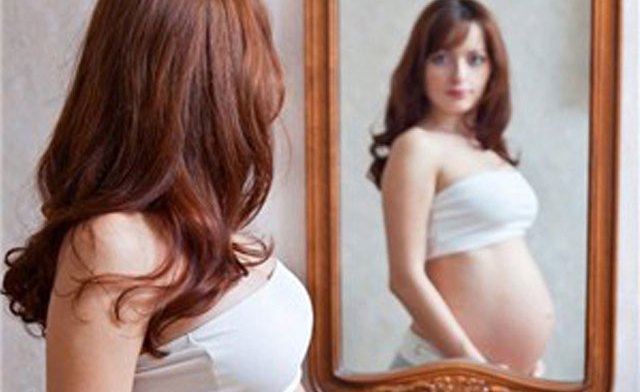
Pregnancy and how it affects hair is a topic of concern for many expectant mothers. A few years ago, DHD helped conduct a study entitled ‘The effect of pregnancy on scalp hair and facial skin’. Of the 375 women studied for 3 years, the most frequently asked question was ‘How will pregnancy affect my hair?’ While pregnancy can often be a terrific time for a your hair, it is not always the case. While skin changes are often noticeable within weeks of conception, changes in your hair are not. Hair has a growth rate of half an inch a month and so it would be impossible to notice changes so rapidly. That said, there may be changes in the amount of sebum produced by your sebaceous glands and this can affect your hairs appearance and feel.
Out of the pregnant women questioned, about a third saw an improvement in their hair after four to five months. They said it fell out less and felt thicker and that this lasted for the rest of the pregnancy. This can be explained by hormonal changes during pregnancy. There is an increase in oestrogen levels and a reduction of androgens which can cause a decrease in the production of sebum. An over-oily scalp can give the hair a heavy, limp and lank feel, and it is the acidity of sebum that smoothes down the hair’s cuticle. When less sebum is produced, the hair appears drier and may have more body, so it feels thicker. Furthermore, oestrogens extend the growth phase of hair, so it stays in the scalp and grows longer. On the other hand, a third of the women questioned stated that the condition of their hair worsened. And the remaining third did not notice any difference! However, of the 375 women, 50% experienced post-partum hair fall.
Why some women have wonderful hair during pregnancy and others complain of it all the time is still not fully understood. We know that hormonal changes during pregnancy vary in each individual and that the susceptibility of the hair follicles to these changes also varies. It is impossible to estimate in advance what these effects will be. Your hair can be wonderful during a first pregnancy and be quite the reverse in the second – or vice versa. There are some things, however, that can be done to help get the best out of your hair during pregnancy.
A growing foetus uses a huge amount of energy. Following the four-hour nutrition rule is highly important i.e. snack on a complex carbohydrate such as fruit/wholegrain toast if more than four hours is left between meals. Hair is not an essential tissue, like a growing baby, so it will suffer if you don’t eat regularly. However, always consult your Dr. before making any changes to your diet. To combat the dryness during pregnancy, treat your hair to a weekly pre-shampoo conditioning treatment. A temporary change in your shampoo or conditioner to one that is more moisturizing may also be helpful. Furthermore, do not over-brush your hair or over-dry it with the hairdryer. If your hair is already dry, this can be quite damaging. Above all, don’t worry about your hair.
Apart from a hiccup or two at the beginning, by the end of your pregnancy, the chances are that your hair will look great!
Sebaceous glands secrete the oily, waxy substance called sebum (Latin, meaning fat or tallow) that is made of triglyceride oils, wax, squalene, and metabolytes of fat-producing cells.-;:^
Remember to find out about our very own internet page
<http://www.healthmedicinebook.com/